-
Get 10% off with code HELLO10OFF
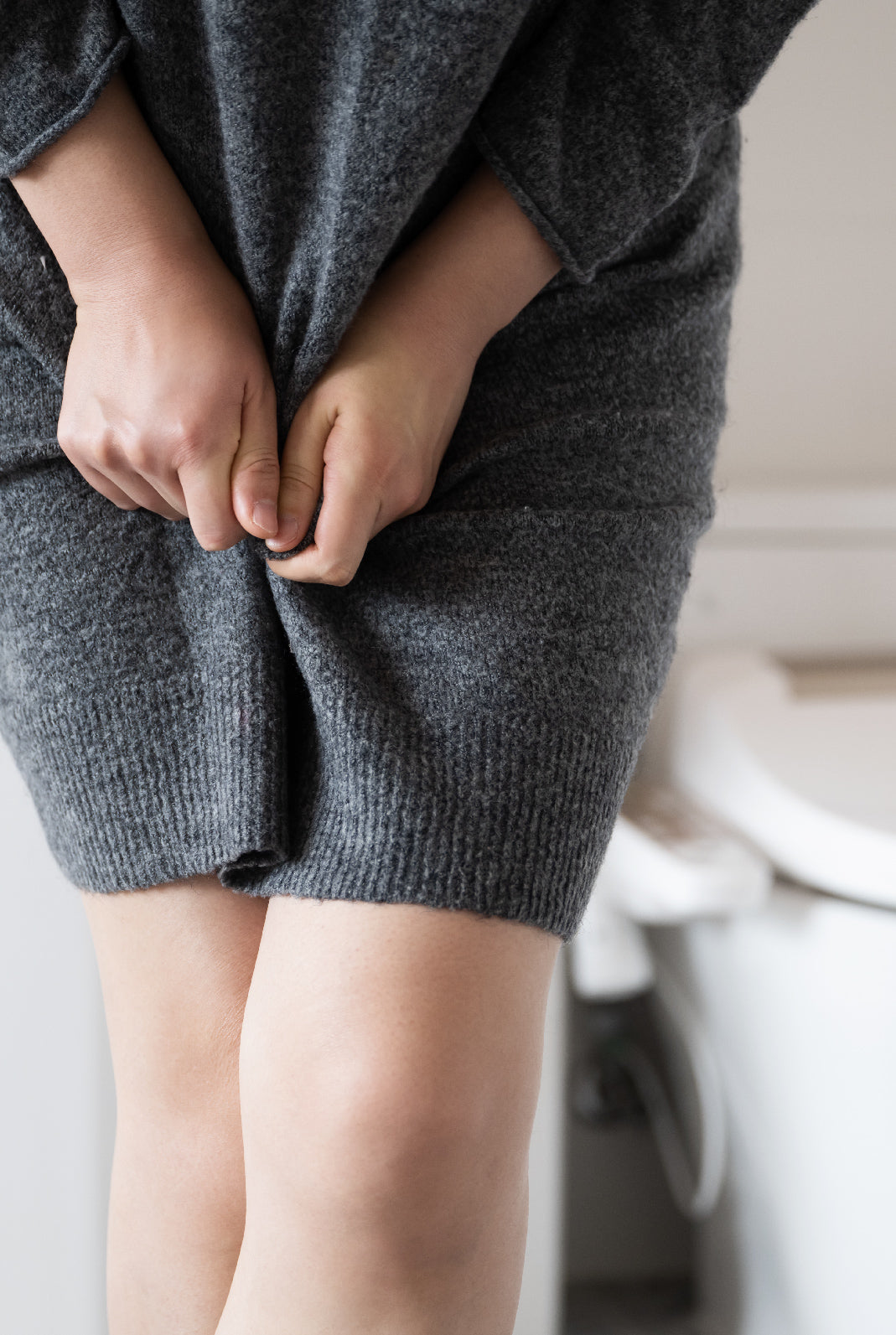
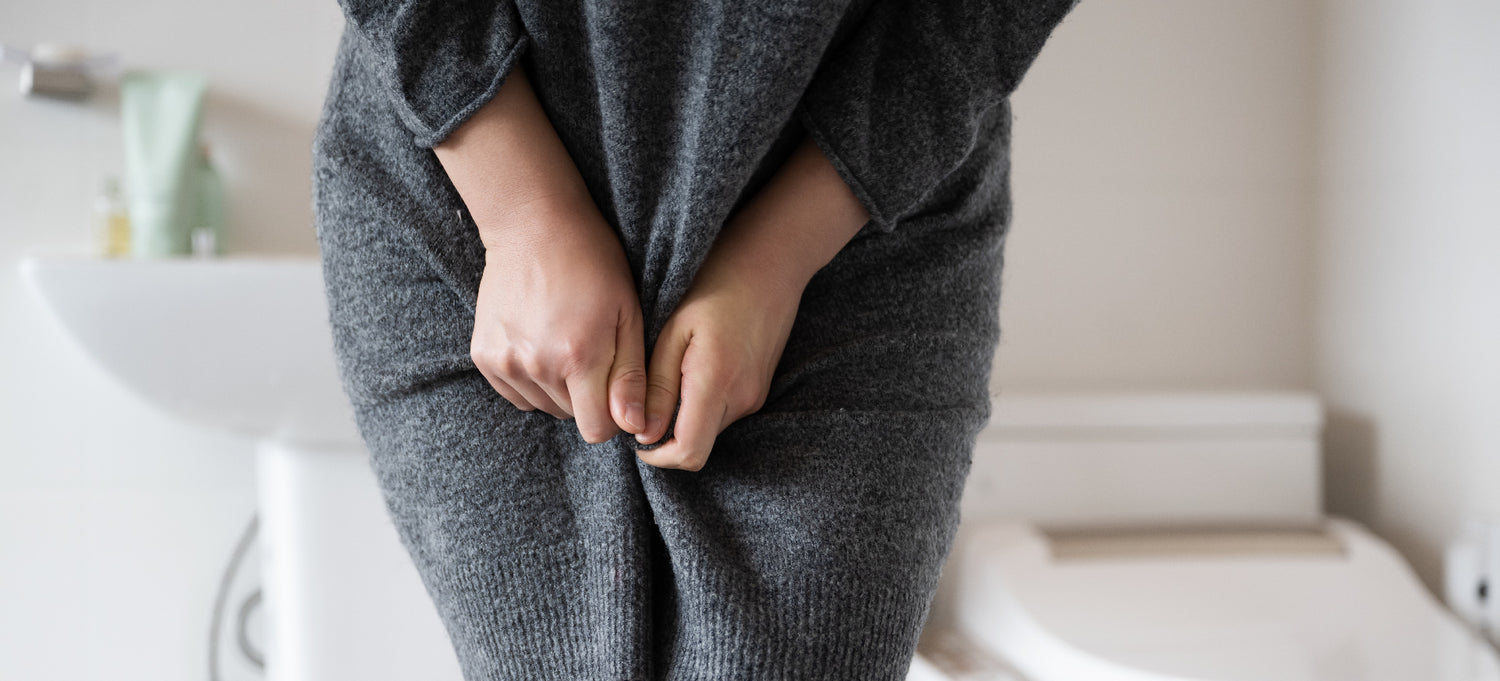
What causes Urinary Incontinence In Menopause?
Have you ever lost your bladder just a bit? Or have you ever been unable to make it to the restroom when you’ve really got to go? Then you may be experiencing incontinence. Incontinence is the involuntary loss of bladder control. It happens to an estimated 20 million people in the US.
Incontinence may include: peeing a little when you laugh, cough, sneeze, lift something heavy, jump, or run. It may also mean having to speed to the toilet when you get the urge to pee or urinate frequently, including during the night. Women with incontinence often have to plan outings carefully so they don’t end up far away from a bathroom.
URINARY INCONTINENCE IS PRIMARILY CAUSED BY:
- Hormonal decline that leads to weak, thinning tissues in your urethra, bladder, and pelvic floor
- Pregnancy and childbirth
- Certain foods and drinks
- Insulin resistance and diabetes
Urinary incontinence is quite common. Over 25% of women are believed to experience this inconvenient phenomenon. It’s more common in women who have had multiple pregnancies and deliveries, as well as women with diabetes or insulin resistance. Women who have had pelvic surgery (such as hysterectomy) and recurring urinary tract infections are also at higher risk of developing incontinence. High-impact workouts can exacerbate urinary incontinence, too, so athletes can be at higher risk for it.
What can I do about it?
Urinary incontinence is common, but you don’t have to live with it. Your doctor may prescribe you medications to help better control the bladder muscle. They also may recommend a pessary, which is a device inserted into the vagina to help physically support the bladder and urethra. Sometimes things like Botox or collagen injections may be suggested to help muscle spasms and thinning tissues. Hormone replacement therapy and prescription estrogen creams may help with incontinence as well.
A healthy diet full of anti-inflammatory foods, and locally applied Dehydroepiandrosterone (DHEA) has been extremely effective for many of my patients suffering from urinary issues. DHEA is a hormone that your body synthesizes into other hormones, so it’s ideal for supporting healthy tissues and can even help in the libido department, too.
No more leaks — no prescription required
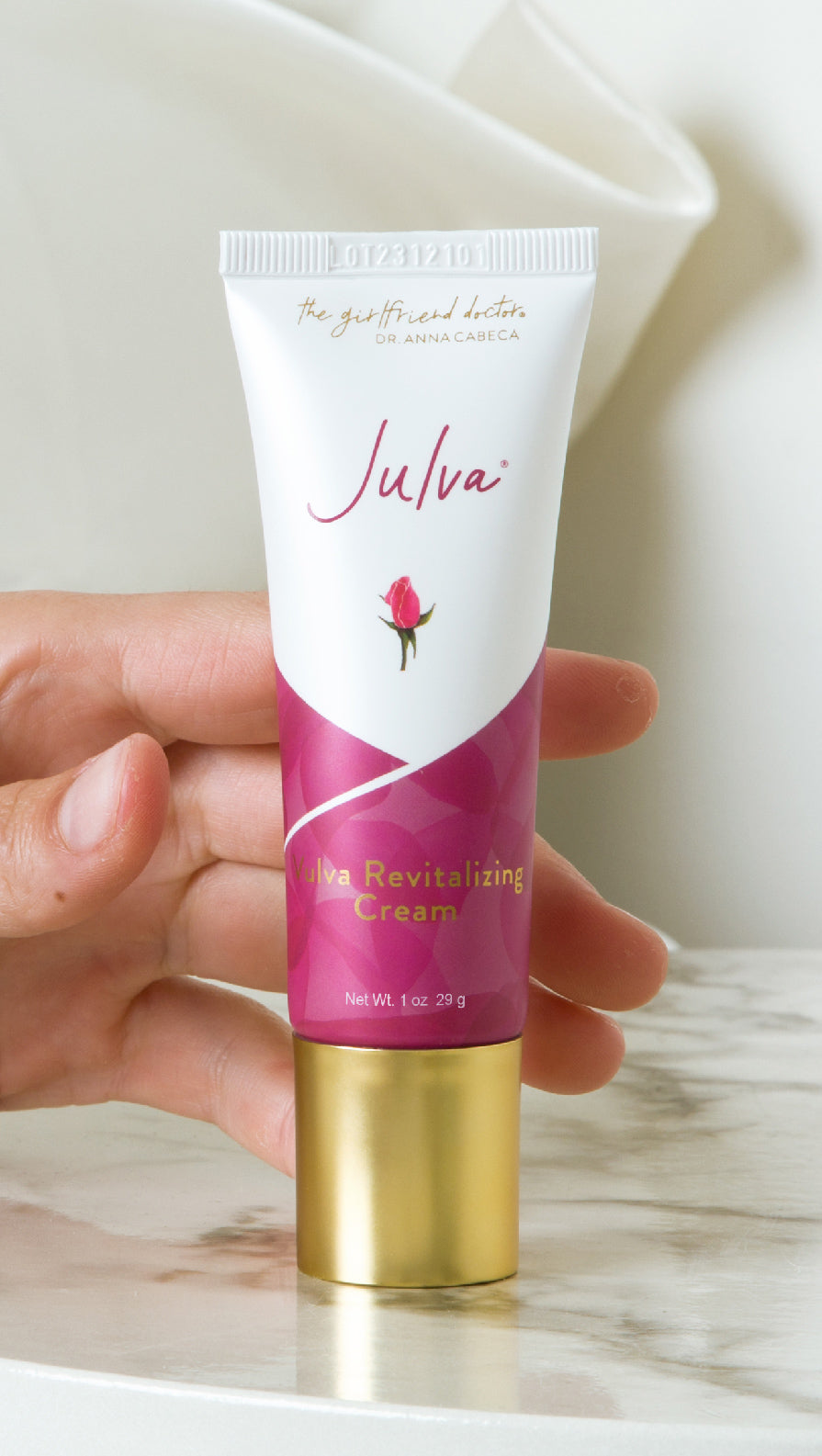

WHICH IS WHY I CREATED:
Julva
Julva supports your quest to stop the leaks. One of the main active ingredients in Julva® is DHEA, which supports strength and flexibility in your urethra, pelvic floor, vagina and vulva. It’s a major helping hand when it comes to incontinence. Plus, it restores juiciness to your vagina and helps with libido, too.
FEATURED INGREDIENTS:


Other Things You Can Do To Help With Urinary Incontinence
Urinary incontinence can be reduced, with the help of a holistic approach that includes an anti-inflammatory diet and pelvic floor exercises.
Before resorting to injections or surgery, be sure to explore these options:
-


-
KEGELS
Kegel exercises, when done correctly, strengthen the pelvic floor muscles and can improve symptoms of incontinence — and they can improve arousal and orgasm, too…so a good Kegel program is a no-brainer!
-
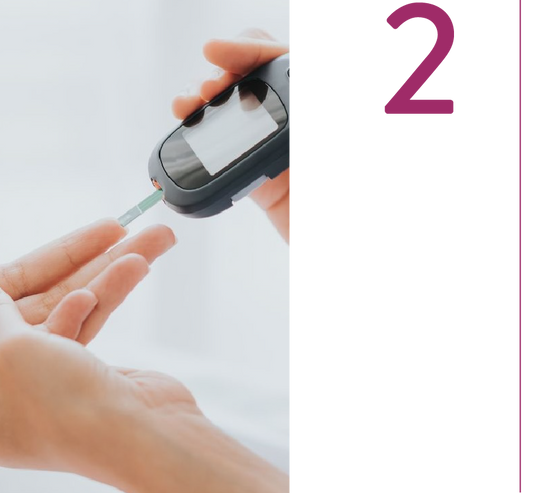
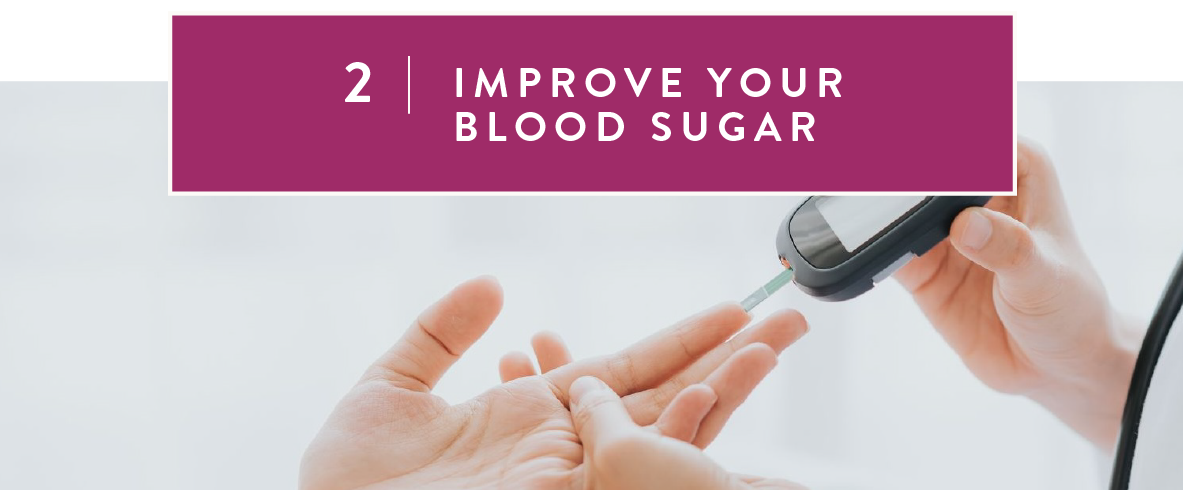
-
IMPROVE YOUR BLOOD SUGAR
Urinary incontinence is more likely to affect women with insulin resistance and diabetes. This is why it’s important to make sure you’re managing your blood sugar and improving insulin sensitivity with your diet. A ketogenic diet that includes plenty of green vegetables can help you get there.
-
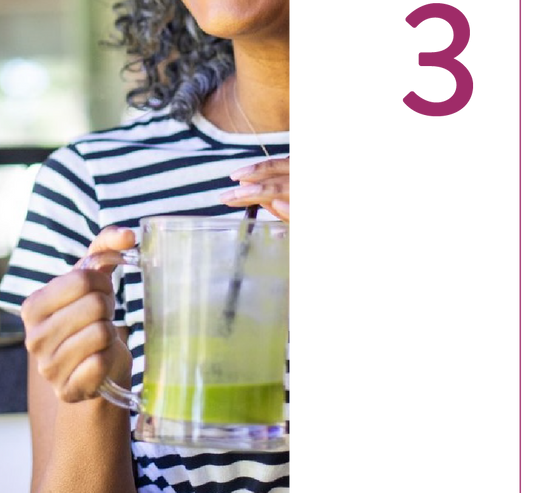
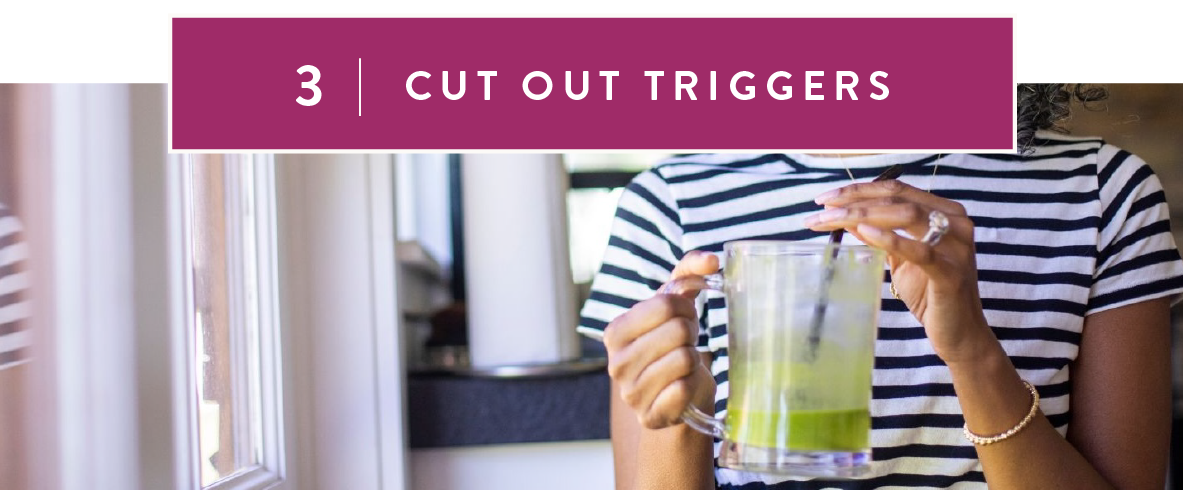
-
CUT OUT TRIGGERS
Caffeine, carbonated drinks, alcohol, and spicy foods can all exacerbate incontinence. It’s best to cut them out, or at least cut back on them where you can.
You have the power to rewrite your story
Urinary incontinence isn’t just inconvenient, it seriously affects your quality of life. And if left untreated, it only progresses. Incontinence can lead to an increase in UTIs, worsening pelvic floor disorders like prolapse, and even depression. Incontinence can be a huge strain on intimate relationships, and caregivers as we age, too. While we’re often encouraged to just power through things like this, it’s best to work on reducing or reversing incontinence as soon as it appears.







